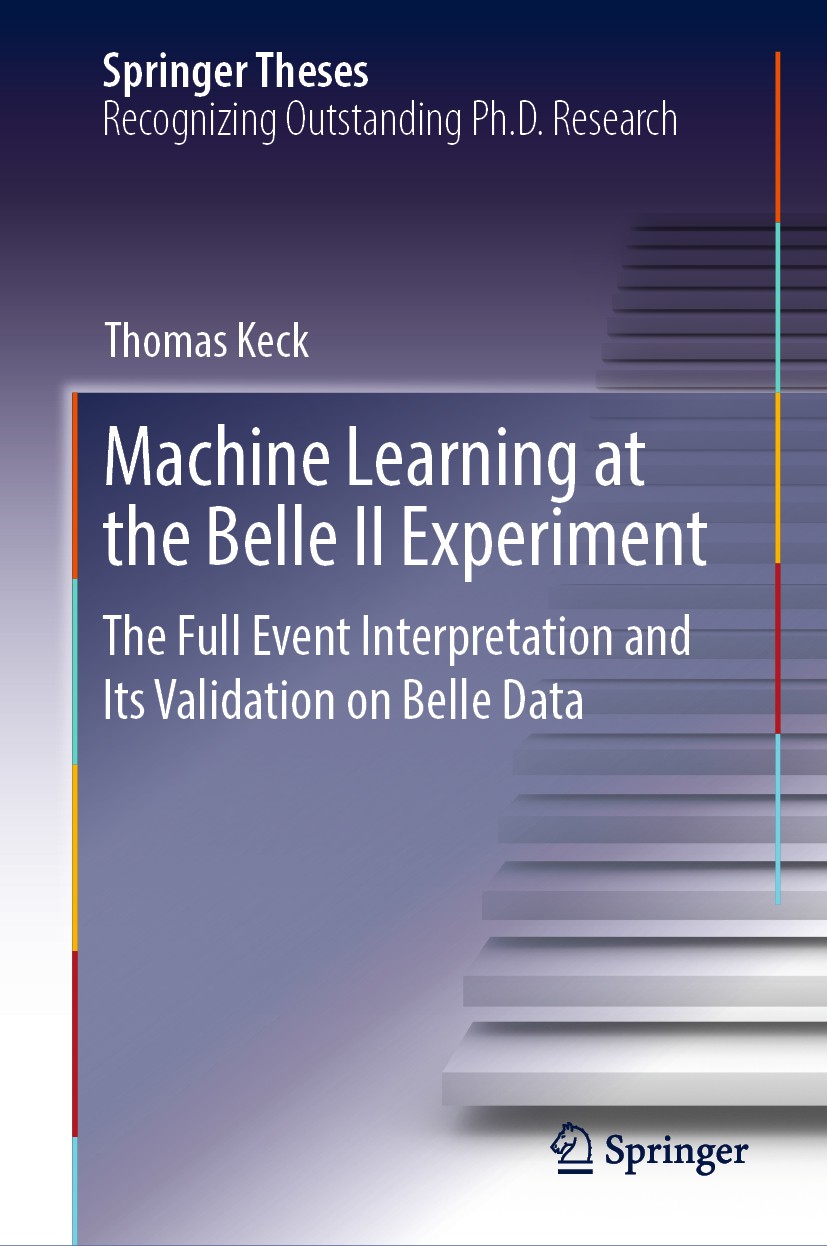| 书目名称 | Machine Learning at the Belle II Experiment |
| 副标题 | The Full Event Inter |
| 编辑 | Thomas Keck |
| 视频video | http://file.papertrans.cn/621/620580/620580.mp4 |
| 概述 | Nominated as an outstanding Ph.D thesis by the Karlsruhe Institute of Technology, Karlsruhe, Germany.Includes a comprehensive introduction into the Full Event Interpretation.Provides detailed results |
| 丛书名称 | Springer Theses |
| 图书封面 |  |
| 描述 | .This book explores how machine learning can be used to improve the efficiency of expensive fundamental science experiments...The first part introduces the Belle and Belle II experiments, providing a detailed description of the Belle to Belle II data conversion tool, currently used by many analysts. ..The second part covers machine learning in high-energy physics, discussing the Belle II machine learning infrastructure and selected algorithms in detail. Furthermore, it examines several machine learning techniques that can be used to control and reduce systematic uncertainties. ..The third part investigates the important exclusive B tagging technique, unique to physics experiments operating at the Υ resonances, and studies in-depth the novel Full Event Interpretation algorithm, which doubles the maximum tag-side efficiency of its predecessor. ..The fourth part presents a complete measurement of the branching fraction of the rare leptonic B decay “B→tau nu”, which is used to validate the algorithms discussed in previous parts.. |
| 出版日期 | Book 2018 |
| 关键词 | Machine Learning at Belle II; Full Event Interpretation; Exclusive Tagging; Hadronic Tagging; Semilepton |
| 版次 | 1 |
| doi | https://doi.org/10.1007/978-3-319-98249-6 |
| isbn_ebook | 978-3-319-98249-6Series ISSN 2190-5053 Series E-ISSN 2190-5061 |
| issn_series | 2190-5053 |
| copyright | The Editor(s) (if applicable) and The Author(s), under exclusive license to Springer Nature Switzerl |
 |Archiver|手机版|小黑屋|
派博传思国际
( 京公网安备110108008328)
GMT+8, 2026-1-1 19:34
|Archiver|手机版|小黑屋|
派博传思国际
( 京公网安备110108008328)
GMT+8, 2026-1-1 19:34


